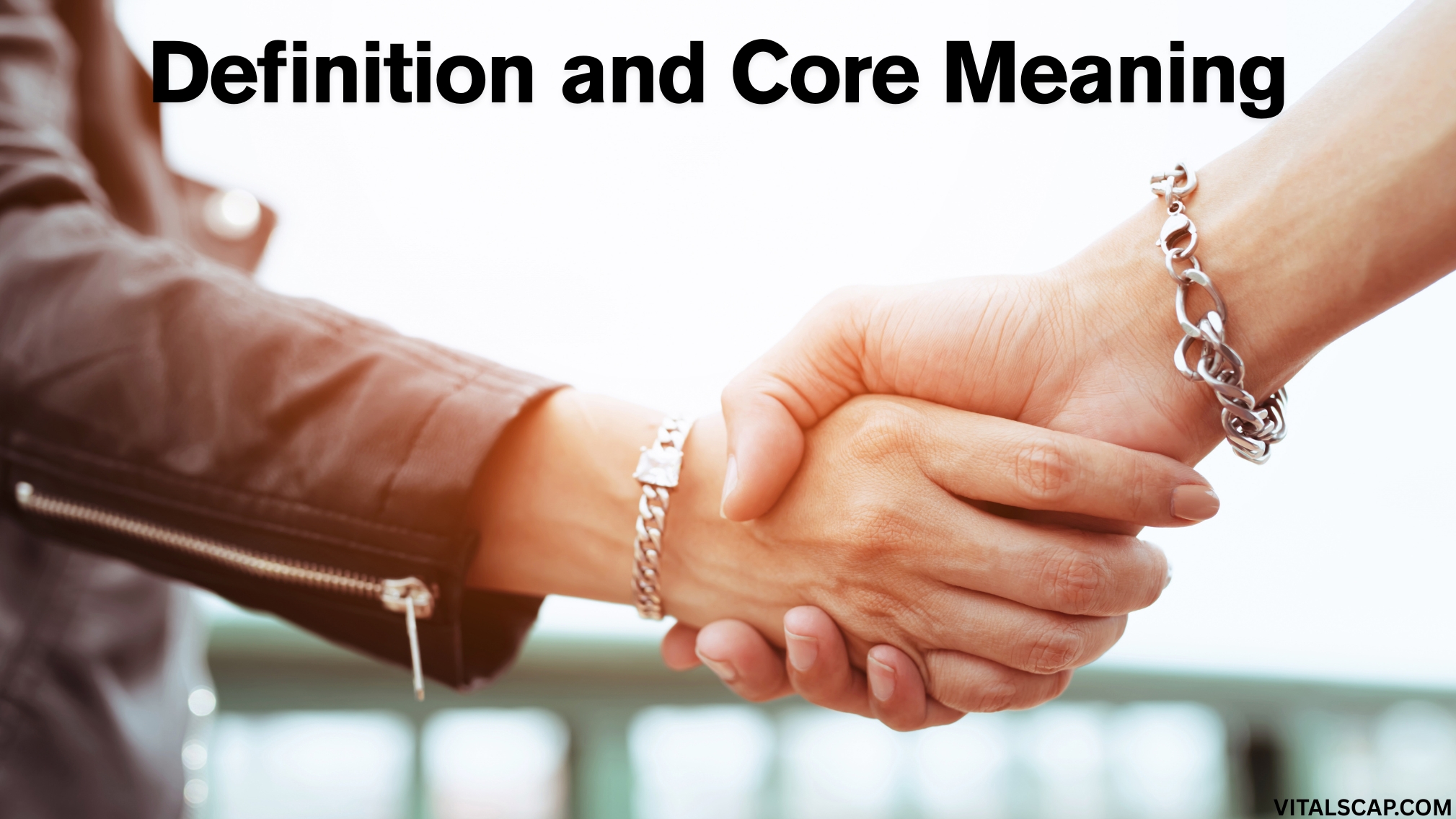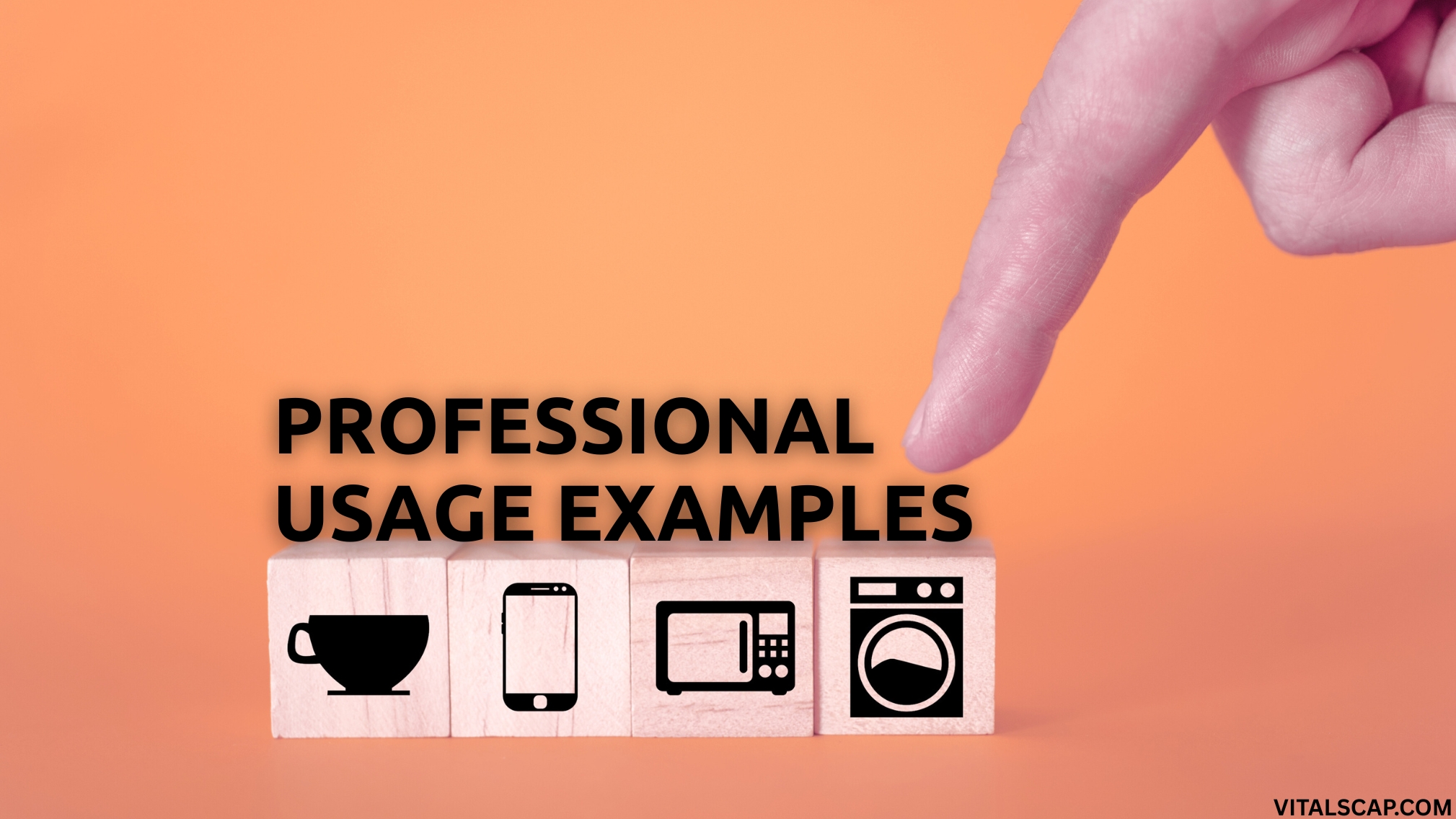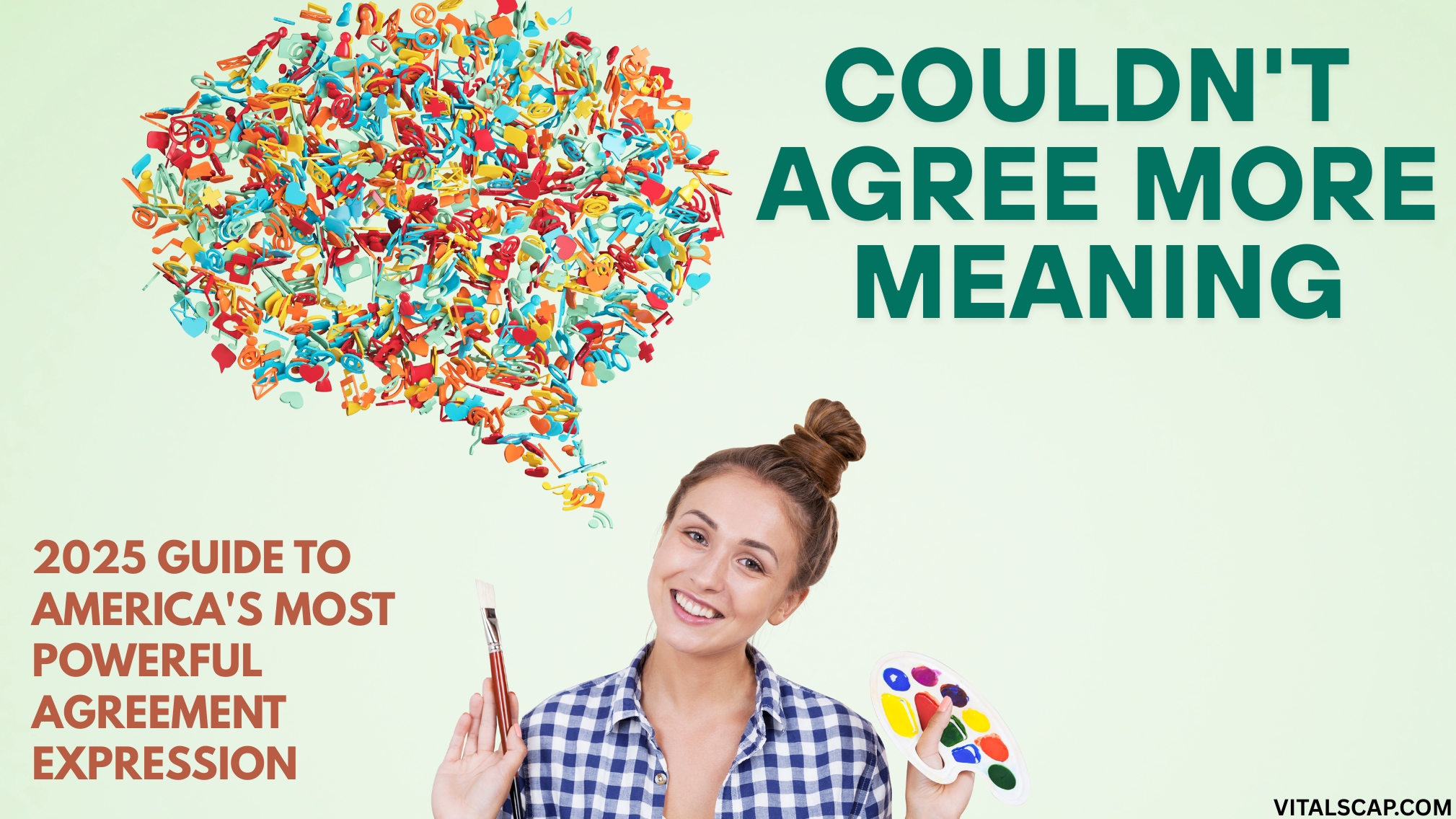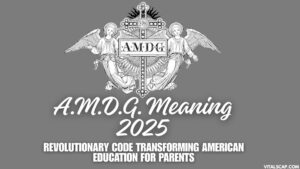When someone says “I couldn’t agree more,” they’re not just expressing simple agreement. This powerful conversational phrase represents the pinnacle of total agreement in American English. Understanding the true couldn’t agree more meaning transforms ordinary conversations into compelling communication experiences.
This idiomatic expression carries remarkable linguistic weight that most people overlook. From boardrooms to coffee shops, Americans use this phrase daily without realizing its sophisticated structure and psychological impact. Mastering its interpretation and definition unlocks communication success across professional and personal relationships.
Definition and Core Meaning

The phrase “I couldn’t agree more” expresses complete agreement through conditional impossibility. When you declare you “couldn’t agree more,” you’re stating that maximum concurrence has been reached. Adding even one degree of additional agreement becomes impossible through this conversational English construction.
This idiomatic expression operates through fascinating grammatical mechanics. The word “couldn’t” creates hypothetical impossibility rather than present inability. Combined with “agree” and “more,” it forms an emphatic affirmation that surpasses simple responses while demonstrating sophisticated English language usage awareness.
I Couldn’t Agree More Complete Definition
Idiomatic meaning extends beyond literal interpretation in this powerful phrase. The expression functions as a strong agreement amplifier that validates the speaker while demonstrating sophisticated linguistic awareness. Native speakers intuitively understand its emphasis without conscious grammatical analysis.
Modern English language usage has elevated this phrase to premium status in professional communication. It signals thoughtful consideration rather than reflexive agreement, making it invaluable in business negotiations and relationship building.
Understanding Pronunciation Delivery Techniques
Proper pronunciation enhances the phrase’s impact through strategic emphasis placement. The stress typically falls on “more,” creating rising intonation that conveys genuine enthusiasm rather than mechanical affirmation.
Conversational phrases require natural delivery to maintain authenticity. Practiced speakers vary their tone based on context, using measured delivery in professional settings while allowing animated expression of opinion in casual conversations.
Grammar Structure Analysis
This idiomatic expression demonstrates sophisticated grammatical construction through negative conditional phrasing. The components “couldn’t,” “agree,” and “more” work together to create emphasis that simple positive statements cannot achieve. Understanding this interpretation and definition reveals why the phrase carries such linguistic power.
Linguists recognize this pattern as emphatic agreement through negated intensification. You’re essentially declaring that maximum concurrence prevents further agreement possibility. This grammatical elegance explains why the phrase feels more substantial than basic alternatives in conversational English.
Breaking Down Linguistic Components
The conditional “couldn’t” implies inclination or preference rather than ability. This subtle distinction elevates the phrase beyond mechanical responses to genuine expression of opinion. Understanding this interpretation and definition improves natural usage patterns.
Conversational English benefits from such sophisticated constructions because they demonstrate linguistic competence while maintaining accessibility. The phrase works across educational and professional levels without sounding pretentious.
Grammar Rules Comparison
| Aspect | “Can’t Agree More” | “Couldn’t Agree More” |
| Formality | Casual, immediate | Professional, thoughtful |
| Context | Friends, family | Business, academia |
| Tone | Direct, emphatic | Considered, diplomatic |
| Usage | Spontaneous reactions | Deliberate responses |
“Can’t agree more” appears frequently in casual speech among Americans. However, “couldn’t agree more” carries additional sophistication that makes it preferable in professional environments requiring diplomatic strong agreement.
Regional preferences influence choice between variations. Conversational phrases evolve differently across American regions, with some areas favoring the contracted form while others prefer the full conditional construction for total agreement.
Professional Usage Examples

Professional environments showcase this phrase’s versatility through various agreement scenarios. Corporate meetings benefit when participants use thoughtful concurrence rather than simple nods or basic responses. Total agreement expressed through this idiomatic expression builds credibility while demonstrating active listening skills.
Email communications gain authority when incorporating this conversational English naturally. Instead of writing “I agree with your proposal,” using “I couldn’t agree more with your strategic approach” conveys deeper emphasis and professional respect for colleagues’ contributions.
Business Meeting Applications
Strong agreement in professional settings requires strategic timing and appropriate delivery. When executives express complete agreement with strategic initiatives, they demonstrate leadership alignment that influences team confidence positively through emphatic affirmation.
Salary negotiations particularly benefit from strategic deployment of agreement phrases. When candidates express concurrence with company values or project directions, they demonstrate cultural alignment that influences hiring decisions.
Real Sentence Examples
- Professional: “Your analysis identifies every market challenge we’re facing – I couldn’t agree more with your conclusions about consumer trends.”
- Academic: “The research methodology you’ve outlined is comprehensive and rigorous – couldn’t agree more with this systematic approach to data collection.”
- Personal: “This neighborhood needs better public transportation options – I couldn’t agree more about the infrastructure issues affecting residents.”
These examples demonstrate natural expression of opinion while maintaining the phrase’s idiomatic meaning. Context determines formality level, but the core interpretation and definition remains consistent.
Synonyms and Alternatives
Conversational phrases require variety to maintain engagement and authenticity. While “couldn’t agree more” provides powerful emphasis, overuse diminishes impact and makes speakers sound repetitive or insincere. Professional agreement benefits from diverse vocabulary that matches the phrase’s intensity without exact repetition.
These alternatives maintain the strong agreement message while providing natural conversation flow. Strategic rotation prevents mechanical responses while preserving the emphatic nature of total agreement expressions in various contexts.
Formal Professional Alternatives
- “Absolutely aligned with your perspective” (corporate concurrence)
- “That resonates completely with my experience” (total agreement with personal validation)
- “My sentiments exactly” (classic affirmation style)
- “Wholeheartedly concur with your assessment” (academic strong agreement)
- “Precisely my thoughts on the matter” (idiomatic expression of alignment)
Each alternative carries specific connotations that suit different professional contexts. “Wholeheartedly concur” works well in legal or academic settings, while “absolutely aligned” fits corporate environments perfectly.
International Cultural Perspectives
“I couldn’t agree more” meaning in Hindi translates to concepts like “मैं पूरी तरह सहमत हूँ” (main poori tarah sahamat hun), expressing complete agreement through different linguistic structures while maintaining similar emphasis.
“I couldn’t agree more” meaning in Urdu corresponds to “میں مکمل طور پر متفق ہوں” (main mukammal tor per muttafiq hun), demonstrating how different languages achieve total agreement expression of opinion through varied approaches.
| Language | Translation | Cultural Usage |
| Hindi | मैं पूरी तरह सहमत हूँ | Formal and informal contexts |
| Urdu | میں مکمل طور پر متفق ہوں | Respectful agreement expression |
| Spanish | No podría estar más de acuerdo | Professional and personal use |
| French | Je ne saurais être plus d’accord | Formal agreement emphasis |
Common Usage Mistakes

Understanding “couldn’t agree less” meaning prevents embarrassing communication errors. This phrase expresses complete disagreement rather than agreement, representing the opposite interpretation and definition of our target expression. Confusion between these phrases creates awkward professional situations.
Timing mistakes occur when speakers use emphatic conversational phrases inappropriately. Strong affirmation feels wrong when someone shares tragic news or personal struggles, potentially seeming like celebration of their misfortune rather than appropriate sympathy.
Critical Phrase Differences
“Couldn’t agree more” means total agreement and concurrence. “Couldn’t agree less” means complete disagreement and opposition. These idiomatic expressions represent opposite ends of opinion intensity, making confusion potentially embarrassing in professional contexts.
Context awareness prevents inappropriate strong agreement usage. Funeral conversations, crisis discussions, and sensitive personal revelations require gentle responses rather than emphatic conversational English that might seem insensitive.
Overuse Prevention Strategies
Authentic conversational phrases require rotation to maintain credibility. Speakers who constantly respond with “couldn’t agree more” sound mechanical rather than genuinely engaged with expression of opinion from others.
Natural English language usage incorporates varied agreement responses based on situation intensity. Save emphatic phrases for moments deserving maximum concurrence, using simpler alternatives for routine affirmation needs.
Digital Communication Patterns
Social media platforms showcase evolving conversational English patterns where “couldn’t agree more” appears frequently in comment threads. LinkedIn professionals use this phrase to build network relationships through thoughtful agreement responses that demonstrate engagement with colleagues’ content.
Urban Dictionary interpretations sometimes differ from formal English language usage, reflecting generational and cultural variations in idiomatic meaning. However, the core interpretation and definition remains consistent across platforms and demographics in professional communication.
Online Platform Applications
Twitter/X character limits favor shorter agreement expressions, but “couldn’t agree more” provides maximum impact when space allows. The phrase cuts through digital noise better than simple “agree” responses that get lost in comment streams.
Email communication benefits from strategic conversational phrases that add warmth to professional exchanges. “I couldn’t agree more with your project timeline” sounds more engaging than “Your timeline works for me.”
Expert Recommendations
Dr. Sarah Johnson, linguistics professor at Stanford University, notes: “The phrase ‘couldn’t agree more’ demonstrates sophisticated pragmatic competence, showing speakers understand both literal meaning and social function of emphatic agreement in American discourse.”
Communication expert Robert Chen from Harvard Business School emphasizes: “Strategic agreement expressions like ‘couldn’t agree more’ build professional relationships more effectively than simple confirmation responses because they demonstrate active engagement with others’ ideas.”
Industry-Specific Professional Applications
Legal professionals use formal conversational phrases to express concurrence with client positions while maintaining professional boundaries. “I couldn’t agree more with your assessment of the contract terms” provides strong agreement without compromising legal objectivity.
Healthcare communication requires careful agreement expression that validates patient concerns while maintaining clinical authority. Emphatic affirmation helps build trust when patients express health anxieties or treatment preferences appropriately.
Real Success Stories
Marketing executive Jennifer Walsh credits mastering agreement expressions with career advancement: “Learning to use ‘couldn’t agree more’ strategically in client meetings helped me build stronger relationships and close more deals in 2024 through improved communication effectiveness.”
Teacher Michael Rodriguez found that emphatic conversational English improved classroom management: “When students share good ideas, saying ‘couldn’t agree more’ instead of just ‘good point’ encourages more participation and deeper thinking among learners.”
These real-world examples demonstrate how understanding couldn’t agree more meaning creates measurable professional and personal benefits through improved communication effectiveness and relationship building.
Frequently Asked Questions
Is it correct to say “I couldn’t agree more”?
Yes, “I couldn’t agree more” represents grammatically correct conversational English, expressing maximum agreement through emphatic conditional phrasing and proper idiomatic usage.
What is another way to say “I couldn’t agree with you more”?
Powerful synonyms include “absolutely right,” “my thoughts exactly,” “you’ve hit the nail on the head,” providing varied expressions of total agreement.
What does couldn’t disagree more mean?
“Couldn’t disagree more” expresses complete disagreement – the opposite interpretation, indicating maximum opposition through emphatic conversational phrases rather than agreement.
What is the difference between couldn’t agree more and couldn’t agree less?
“Couldn’t agree more” means total agreement and concurrence, while “couldn’t agree less” means complete disagreement – opposite idiomatic expressions of opinion intensity.
Conclusion
Mastering “couldn’t agree more” meaning transforms your conversational English power in 2025. This ultimate idiomatic expression builds stronger relationships through emphatic agreement, enhances professional credibility with total concurrence, and creates lasting connections. Understanding its interpretation and definition unlocks communication success. Start implementing these conversational phrases today. Your expression of opinion will never sound ordinary again. Complete agreement becomes your superpower.
More Post:

Passionate about innovation and growth. Dedicated to managing, optimizing, and creating seamless experiences while supporting diverse content and users with professionalism and clarity every day.








